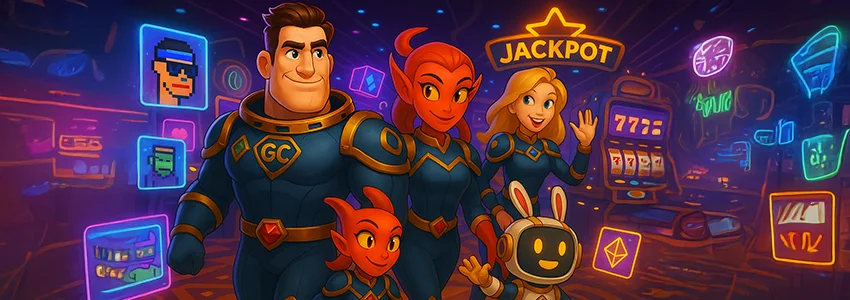Home > Casino Lab > Casino Web3 > NFTs in iGaming: Marketing Gimmick or Real Revolution?
NFTs in iGaming: Marketing Gimmick or Real Revolution?
The rise of non-fungible tokens (NFTs) has shaken up industries from art to real estate, and the iGaming sector is no exception. While some see NFTs as nothing more than a passing fad or flashy marketing gimmick, others argue they represent a true revolution in how players interact with online casinos.
In a world where digital ownership and exclusivity are increasingly valued, NFTs could redefine the relationship between players, games, and operators. The question is whether they will become a cornerstone of online gambling or fade away as another overhyped trend.

What Are NFTs and How Do They Fit Into iGaming?
NFTs are unique digital tokens stored on the blockchain, giving them provable scarcity and ownership. Unlike traditional casino chips or in-game credits, NFTs cannot be duplicated or exchanged on a one-to-one basis. Within iGaming, NFTs can represent exclusive avatars, rare digital items, or even access to private games and tournaments.
This adds a new dimension to the player experience, where gambling is no longer only about winning money but also about collecting, owning, and trading unique assets. For casinos, NFTs provide a way to deepen engagement and reward loyalty with something players can actually own.
The Potential of NFTs in Online Casinos
The integration of NFTs into online casinos opens doors to opportunities that go beyond traditional bonuses and promotions. Imagine receiving an NFT that acts as a VIP pass for premium events, giving players unique privileges such as higher withdrawal limits, custom avatars, or access to private Metaverse casinos.
NFTs can also serve as collectibles, rewarding loyal players with limited-edition items that carry real-world or digital value. In addition, NFTs could be tied to gameplay, with players unlocking unique slot themes, tournament entries, or in-game boosts through tokenized rewards. These mechanics blur the line between gambling and gaming, appealing to a new generation of players who value personalization and ownership as much as the thrill of winning.
The Risks of Treating NFTs as a Gimmick
Despite their potential, NFTs in iGaming also face significant skepticism. Many players perceive them as a superficial marketing strategy designed to cash in on hype rather than enhance gameplay. Without genuine utility, NFT-based promotions risk alienating users who see little value in owning a digital token that does not provide meaningful advantages.
Moreover, the volatility of the NFT market raises concerns, as the value of these assets can fluctuate wildly. Coupled with environmental critiques of blockchain technology and regulatory uncertainty, NFTs could easily be dismissed as a distraction if casinos fail to integrate them in ways that truly enhance the player experience.
A Glimpse Into the Future of NFT-Driven iGaming
Looking forward, the role of NFTs in iGaming will depend on whether operators can deliver long-term value rather than short-term hype.
As the industry evolves, NFTs may become part of loyalty ecosystems, allowing players to trade, sell, or even stake their rewards for additional benefits. In Metaverse casinos, NFTs could power everything from player avatars to interactive environments, creating immersive digital worlds where gambling is only one part of the entertainment experience.
Ultimately, the success of NFTs in iGaming will hinge on their ability to combine utility, engagement, and innovation, rather than existing solely as digital collectibles.
Conclusion
NFTs in iGaming sit at a crossroads between gimmick and revolution. On one hand, they risk being dismissed as flashy marketing tools with little substance; on the other, they hold the potential to redefine loyalty programs, personalize experiences, and create entirely new forms of player engagement.
If implemented thoughtfully, NFTs could become a cornerstone of the future casino experience. If misused, they may vanish as quickly as they appeared.

